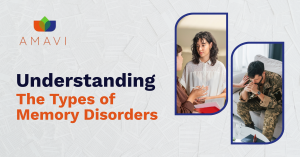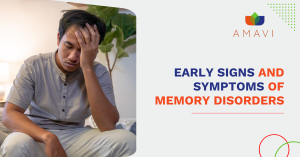Depression in older adults is a critical mental health issue that often goes underrecognized and undertreated. As life expectancy increases, the aging population grows, bringing unique psychological and social challenges. Let’s take a look at the signs and symptoms of depression in seniors, the challenges in diagnosing it, and effective treatment approaches tailored for this population. As life expectancy increases, the aging population grows, bringing unique psychological and social challenges that raise important ethical concerns around consent and care and in general about Geriatric Psychiatry.
Signs and Symptoms of Depression in Seniors
Depression in older adults may manifest differently than in younger populations. Awareness of these signs is crucial for timely diagnosis and treatment.
- Persistent Sadness and Low Mood
Seniors with depression often exhibit prolonged feelings of sadness, hopelessness, or helplessness. However, they may not always articulate these feelings, instead expressing irritability or withdrawal. - Loss of Interest or Pleasure
A common symptom is a lack of interest in previously enjoyable activities, such as hobbies, socializing, or family interactions. This can lead to social isolation, exacerbating their condition. - Physical Complaints Without a Clear Cause
Depression in older adults often presents through physical symptoms like chronic pain, fatigue, or digestive issues, which may not respond to traditional treatments. These are sometimes mistaken for age-related conditions. - Changes in Appetite or Weight
Significant weight loss or gain can indicate depression. Older adults may lose interest in food due to a lack of appetite or indulge in overeating as a coping mechanism. - Sleep Disturbances
Insomnia, early waking, or excessive sleeping are common signs of depression. Sleep disruptions can further deteriorate cognitive and physical health. - Cognitive Difficulties
Memory problems, indecisiveness, and slowed thinking are often mistaken for dementia or mild cognitive impairment but may indicate underlying depression. - Suicidal Thoughts or Behaviors
Alarmingly, older adults may experience thoughts of death or suicide, particularly if they are isolated or grappling with significant losses.
Unique Challenges in Diagnosing Geriatric Depression
Diagnosing depression in seniors presents distinct challenges, stemming from overlapping symptoms, stigma, and underreporting.
- Overlap With Other Conditions
Depression symptoms often mimic or coexist with medical conditions common in older adults, such as dementia, Parkinson’s disease, or cardiovascular disorders. For example, fatigue or cognitive decline can be attributed to aging or other health issues, leading to misdiagnosis. - Underreporting of Symptoms
Older adults may downplay or dismiss their emotional struggles, considering them a normal part of aging. This reluctance often stems from stigma surrounding mental health issues or a lack of awareness. - Communication Barriers
Cognitive impairments or sensory limitations, such as hearing or vision loss, can hinder effective communication, complicating the diagnostic process. - Cultural and Generational Factors
Many older individuals grew up in an era when mental health issues were rarely discussed. This generational mindset may prevent them from seeking help or recognizing their symptoms. - Medicalization of Emotional Problems
Depression symptoms are often masked by physical complaints, leading healthcare providers to focus on treating physical ailments rather than addressing the root psychological causes. - Polypharmacy and Drug Interactions
Seniors often take multiple medications for chronic conditions. The side effects of these drugs can mimic or exacerbate depression, making it challenging to pinpoint the underlying cause.
Effective Treatment Approaches
Treatment for depression in older adults requires a comprehensive, individualized approach. Combining pharmacological, psychosocial, and lifestyle interventions can significantly improve outcomes.
1. Pharmacological Interventions
- Selective Serotonin Reuptake Inhibitors (SSRIs): These are often preferred for seniors due to their safety profile. Medications like sertraline or escitalopram are effective and well-tolerated.
- Monitoring and Adjustments: Given age-related changes in metabolism and increased susceptibility to side effects, careful monitoring and dose adjustments are essential.
- Polypharmacy Considerations: Regular medication reviews can identify and address adverse interactions, optimizing the pharmacological regimen.
2. Psychotherapy
- Cognitive Behavioral Therapy (CBT): CBT helps older adults identify and challenge negative thought patterns, promoting healthier coping strategies. Tailored CBT approaches address age-related challenges like loss, chronic illness, and isolation.
- Interpersonal Therapy (IPT): IPT focuses on resolving interpersonal conflicts and building stronger social connections, which are critical for older adults.
- Grief Counseling: Many seniors face significant losses, such as the death of loved ones or physical independence. Grief counseling can help process these experiences.
3. Lifestyle Modifications
- Regular Physical Activity: Exercise improves mood and reduces depressive symptoms by enhancing endorphin levels and overall physical health.
- Balanced Diet: Nutritional interventions can address deficiencies that exacerbate mood disorders, such as low levels of omega-3 fatty acids or B vitamins.
- Quality Sleep: Establishing consistent sleep routines can alleviate insomnia and improve overall well-being.
4. Social Engagement and Support Systems
- Community Programs: Participation in senior centers, volunteer work, or group therapy sessions fosters social interaction and reduces isolation.
- Technology Use: Introducing seniors to digital tools, such as video calls or online communities, can bridge the gap in social connectivity.
- Support Groups: Peer support groups tailored to older adults provide a safe space to share experiences and strategies.
5. Addressing Co-Occurring Conditions
- Integrated Care Models: Collaborative approaches involving psychiatrists, primary care providers, and caregivers ensure holistic treatment.
- Education for Caregivers: Training caregivers to recognize signs of depression and provide support is essential for effective management.
6. Advanced Treatments
- Electroconvulsive Therapy (ECT): For severe or treatment-resistant depression, ECT is an effective option. It is particularly beneficial for seniors unable to tolerate medications.
- Emerging Therapies: Research into treatments like transcranial magnetic stimulation (TMS) offers new hope for managing geriatric depression.
Understanding and addressing depression in older adults is vital for improving their quality of life and overall well-being. By recognizing the unique challenges of diagnosing depression in this population and adopting a comprehensive, multidisciplinary treatment approach, healthcare providers and caregivers can significantly impact their mental health. Amavi Integrative Mental Wellness stands committed to providing specialized geriatric psychiatric care, fostering a brighter future for our aging community.





